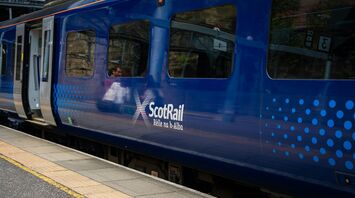ScotRail Reinstates Peak Fares After Trial Fails to Boost Ridership

ScotRail’s trial of eliminating peak-time fares will come to an end next month as a result of unsatisfactory outcomes in increasing traveler count. The trial was financed by the Scottish government, but it did not succeed to encourage more commuters to switch from cars to trains. As a result, the scheme will end on September 27, with fares returning to their previous levels.
Critics contend that the choice represents a major blow to both commuters and environmental initiatives. The Transport Secretary observed that the trial mainly advantaged current rail users, especially those with middle to higher incomes, rather than drawing in new passengers.
The reinstatement of peak-time fares is likely to impact those visiting popular destinations. With fares set to rise, travelers may need to budget more for transportation, particularly during busy periods. This might affect the total cost of journeys and potentially deter impromptu day trips between major cities. Tourists who benefited from the discounted fares during the trial might now look for different ways to travel or schedule their trips during off-peak hours to cut costs.
The termination of the fare reduction trial may prompt some people to explore less conventional travel options, such as renting cars for flexibility or opting for regional bus services that offer competitive pricing. It could open up new possibilities for exploring Scotland's scenic routes and less-visited areas. However, it also underscores the importance of careful planning to avoid the higher costs associated with peak travel times.
As ScotRail prepares to reinstate peak fares, people will need to adapt to the higher costs. The decision highlights the ongoing challenges in balancing affordable travel with sustainable transportation goals. Ultimately, careful planning and consideration of alternative travel options will be key for those looking to make the most of their journeys across Scotland.



















